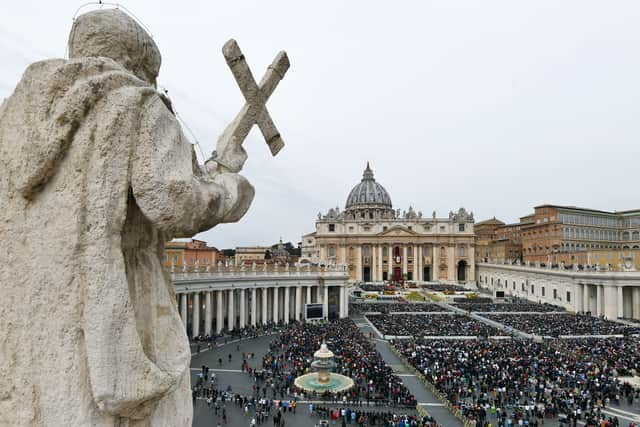When is Easter 2023? UK bank holiday dates including Good Friday - and why Easter Sunday changes day
and live on Freeview channel 276
Easter is one of the most significant dates in the Christian calendar and is popular in the UK, as it always creates a long weekend. The dates for Easter are always worth noting, as there are plenty of activities to do in the spring bank holiday.
But as the date of Easter changes, the bank holidays move with them. So when is Easter in 2023, and when are the bank holidays? Here’s what you need to know.
When is Easter 2023?
Advertisement
Hide AdAdvertisement
Hide AdIn 2023, Easter Sunday falls on 9 April for followers of Western Christianity, and 16 April for Eastern Christianity - a week earlier than last year. This year, Palm Sunday took place on 2 April meaning, Good Friday will fall on 7 April. For those in the Orthodox denominations, Palm Sunday will take place on 9 April and Good Friday on 14 April.
The Easter bank holiday will take place on Friday 7 April and Easter Monday will be on Monday 10 April, creating a complete four-day weekend for people in England, Wales and Northern Ireland. However, Easter does not have a nationwide bank holiday in Scotland, but some councils such as Edinburgh, Falkirk and Dundee claim it as one.
Why does the date of Easter change every year?
The date of Easter always falls on the first Sunday after the Paschal full moon following the vernal equinox in March, as Easter is based on the lunar cycle. Equinoxes happen twice a year and mark the point when the northern and southern hemispheres experience roughly the same amount of day and night as each other.


In 2023, the Spring Equinox is expected to occur on Monday 20 March, with the Paschal full moon expected to fall on Thursday 6 April, making Easter on that Sunday - 9 April 2023.
Advertisement
Hide AdAdvertisement
Hide AdAs the dates of the lunar calendar change, so will the dates of Easter, making it a moveable feast and for those who follow Eastern Orthodox practices, their Church base their liturgical calendar on the Julian calendar, which is currently 13 days behind the Gregorian one.
How was the date of Easter decided?
The history of Easter is outlined in Holy Week, which starts with Palm Sunday. Christians believe Jesus entered Jerusalem for the Jewish holiday, Passover, as he was greeted with palm leaves and celebration.
As the week progressed, on Maundy Thursday, Jesus and his apostles observed Passover but many Christians will know this event as the Last Supper. Due to Judas’ betrayal, Jesus was crucified at Calvary the following day, which is now known as Good Friday. In line with the Easter story, Jesus was resurrected that Sunday, which is celebrated as Easter Sunday. Therefore, Easter and Passover are celebrated at roughly the same time but mark very different events.
Passover is also determined via the lunar calendar. Some early Christians decided to celebrate Easter on the same date as Passover, 14th Nisan in the Hebrew calendar. This usually falls in March or April, which correlates with the Gregorian calendar when we mark Easter. However, the final decision was formulated by the Council of Nicaea, in 325 AD, which was the first major church council, and it was decided that Easter would commence after the first full moon following the March equinox.
Comment Guidelines
National World encourages reader discussion on our stories. User feedback, insights and back-and-forth exchanges add a rich layer of context to reporting. Please review our Community Guidelines before commenting.
